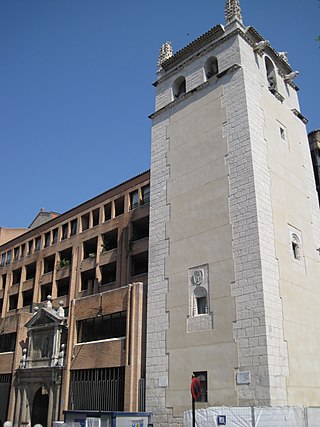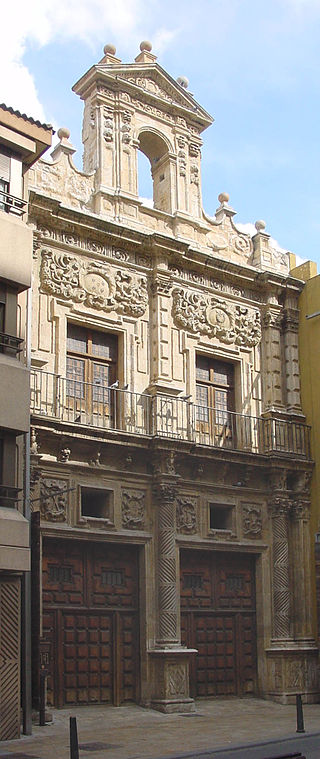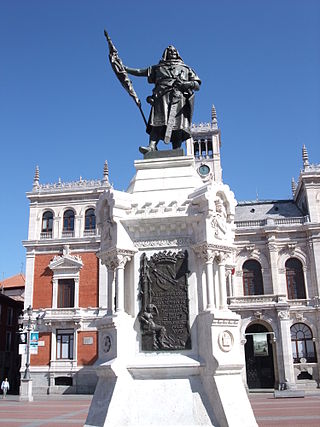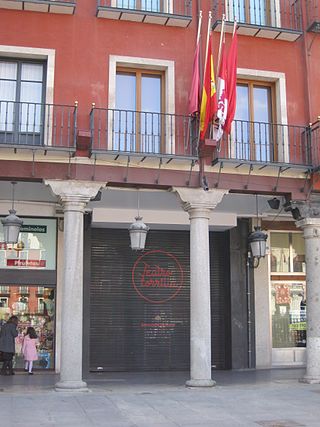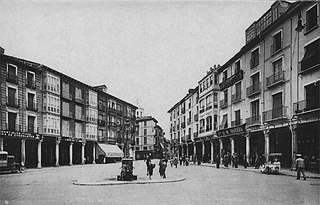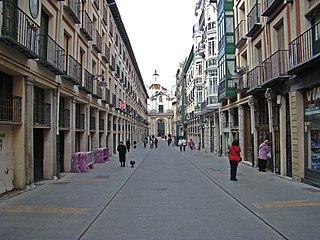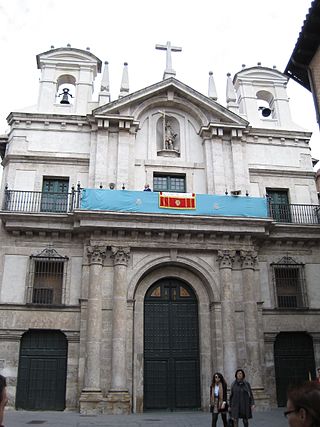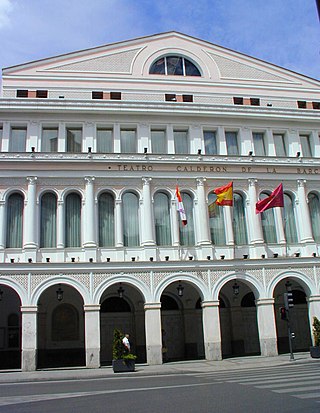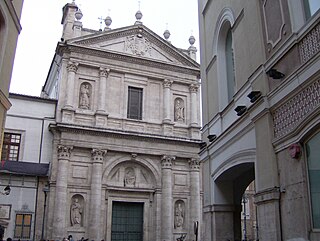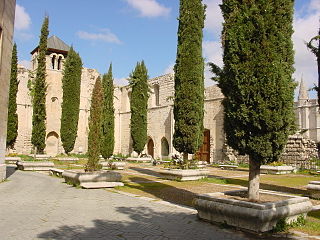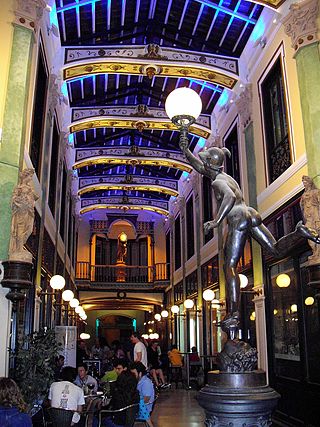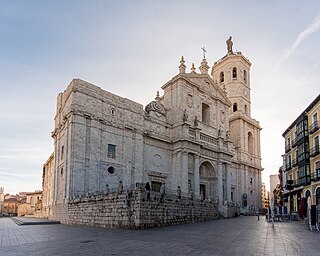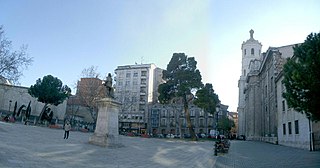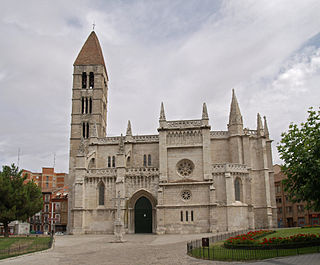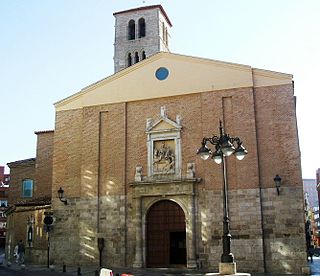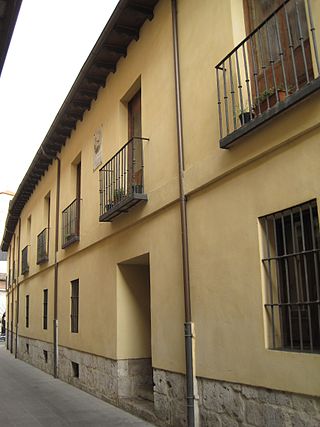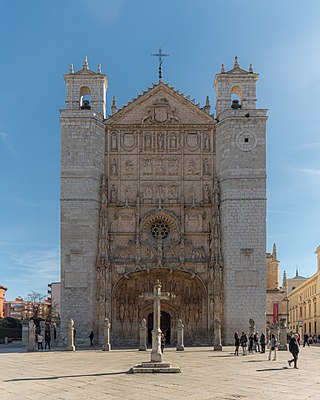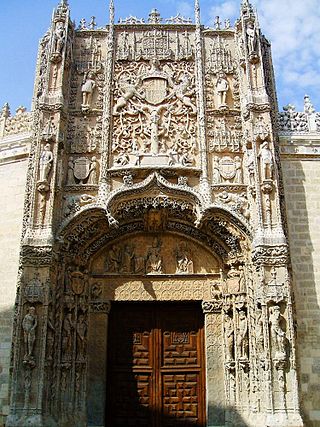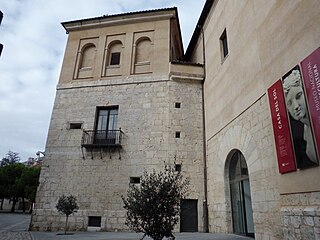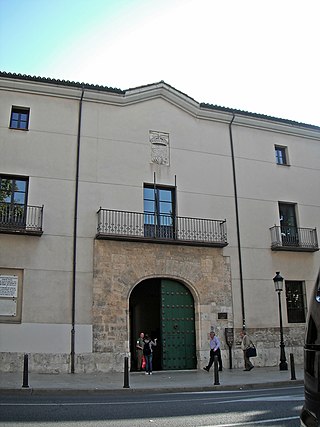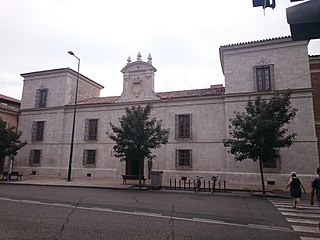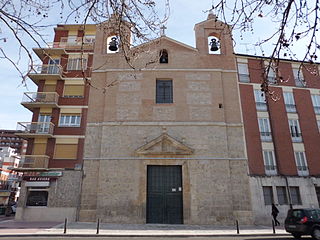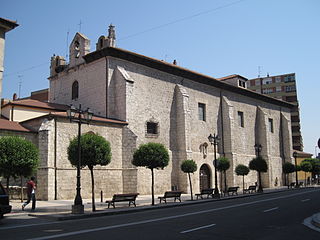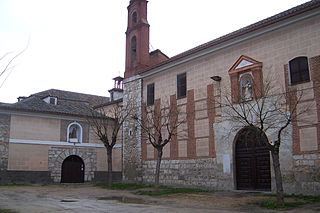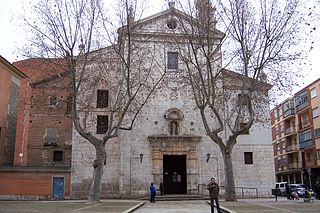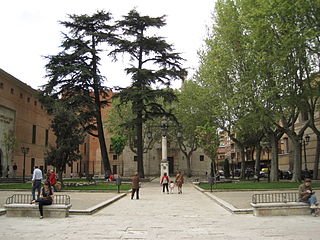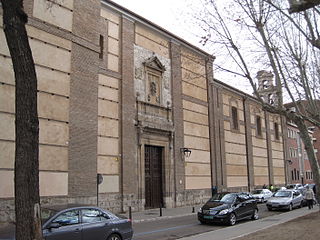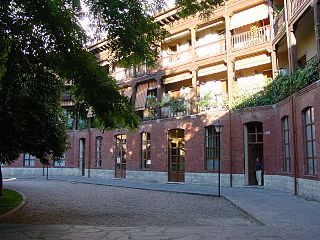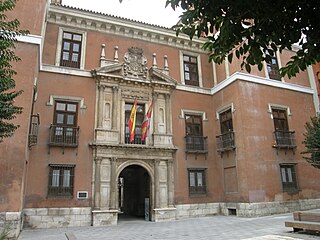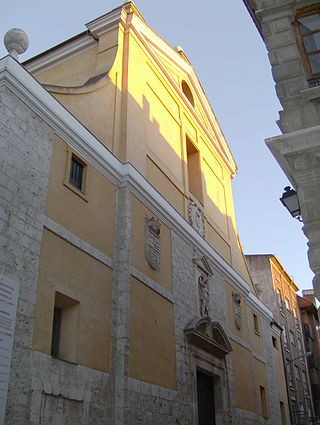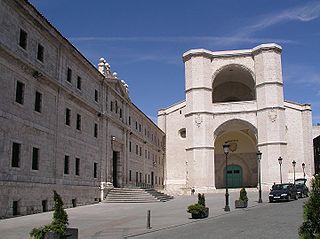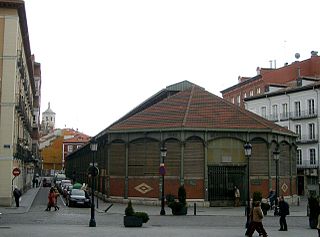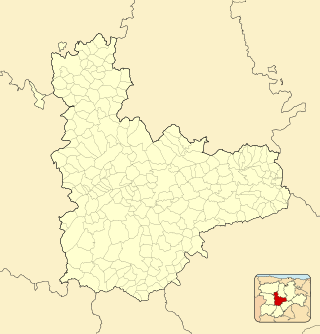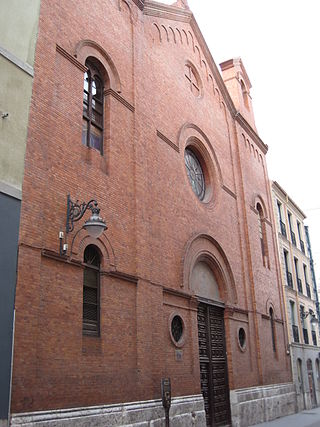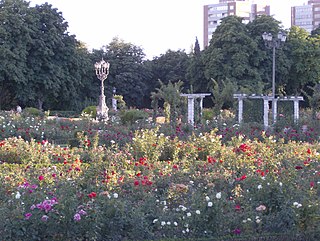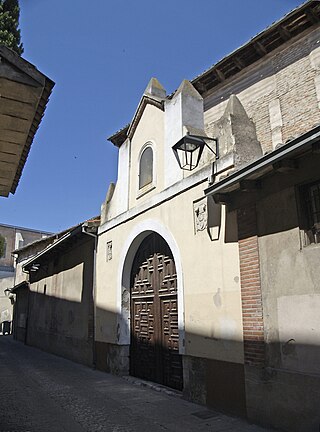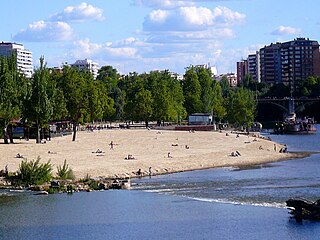Self-guided Sightseeing Tour #1 in Valladolid, Spain
Legend
Guided Free Walking Tours
Book free guided walking tours in Valladolid.
Guided Sightseeing Tours
Book guided sightseeing tours and activities in Valladolid.
Tour Facts
7.5 km
143 m
Experience Valladolid in Spain in a whole new way with our free self-guided sightseeing tour. This site not only offers you practical information and insider tips, but also a rich variety of activities and sights you shouldn't miss. Whether you love art and culture, want to explore historical sites or simply want to experience the vibrant atmosphere of a lively city - you'll find everything you need for your personal adventure here.
Activities in ValladolidIndividual Sights in ValladolidSight 1: Iglesia de San Lorenzo
The church of San Lorenzo is a temple located in Valladolid. The Virgin of San Lorenzo is the patron saint of the city of Valladolid and her feast day is celebrated on September 8.
Sight 2: Sala de Exposiciones Iglesia de la Pasión
The Church of the Passion is a Catholic temple in the Churrigueresque Baroque style, its construction began in 1577, it was the first penitential church in Valladolid. It is currently an exhibition hall located in the centre of Valladolid. It was originally a church built to be the headquarters of the Penitential Confraternity of the Sacred Passion of Christ. The church was closed to religious worship in the 19th century. It was declared a National Monument on March 10, 1928.
Sight 3: Estatua del Conde Ansúrez
The Monument to Count Ansúrez is an instance of public art in Valladolid, Spain. Located at the Plaza Mayor, it consists of a bronze statue of Count Pedro Ansúrez, founder of the town of Valladolid in the 11th century, topping off a stone pedestal with additional sculptural elements.
Sight 4: Plaza Mayor
Join Free Tour*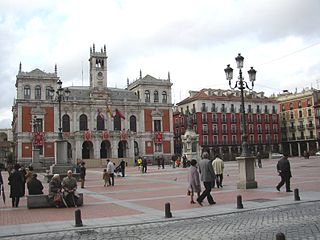
The Plaza Mayor is a central plaza in the city of Valladolid, Spain. It is located only a few blocks away from another famous plaza, the Plaza Zorrilla.
Sight 5: Teatro Zorrilla
The Zorrilla Theatre in Valladolid, the work of the architect Joaquín Ruiz Sierra, is a theatre, located in the Plaza Mayor in the same space where the disappeared Convent of San Francisco was located. Its main façade is not individualized and is concealed, in the square, within the buildings uniformed by the color and architectural appearance of housing. Access is through the arcades and its rear façade overlooks Calle Constitución.
Sight 6: Fuente Dorada
Join Free Tour*The Golden Fountain was a public fountain in the city of Valladolid, Spain. It was the eponym of the square that bears the same name located in a place near the Plaza Mayor: the Plaza de Fuente Dorada. It was built in 1618 under the direction of Diego de Praves, master architect of works of the City Council and was supplied by the water flow of Argales. This fountain had many changes and remodeling over the centuries. Nothing remains of the primitive fountain, only some description such as the one given by Ventura Pérez in his Diario de Valladolid. The last structural change was in 1998 under the direction of the architect Fernando González Poncio; this architect not only planned the square but also built a new fountain with the title of "Allegory of the Guilds".
Sight 7: Calle de la Platería
The historic complex of Calle de la Platería, together with the Plaza del Ochavo, is part of the mercantile complex of the old Market Square of Valladolid and the artisans' quarter that had to be rebuilt after the fire of 1561.
Sight 8: Iglesia de la Veracruz
The Penitential Church of Santa Vera Cruz is a temple located in the center of the city of Valladolid on the historic Calle Platerías.
Sight 9: Teatro Calderón
The Teatro Calderón de la Barca is a theater in Valladolid, Spain. It is named after the playwright Pedro Calderón de la Barca.
Sight 10: Iglesia de Nuestra Señora de las Angustias
The Penitential Church of Nuestra Señora de las Angustias is a church in Valladolid located in the center of the city in front of the Calderón Theater and near the Church of Santa María La Antigua. The church is owned and held by the Illustrious Penitential Brotherhood of Our Lady of Sorrows, one of the oldest brotherhoods of Holy Week in Valladolid.
Wikipedia: Iglesia de Nuestra Señora de las Angustias (Valladolid) (ES)
Sight 11: Colegiata
The collegiate church of Santa María de Valladolid was the main church of the city between the eleventh and sixteenth centuries. Its construction is due to the repopulator of Valladolid Pedro Ansúrez in the eleventh century. Today only a few ruins and a few chapels are preserved, located near the Church of Santa María La Antigua and next to the unfinished cathedral of Valladolid.
Wikipedia: Colegiata de Santa María la Mayor (Valladolid) (ES)
Sight 12: Pasaje Gutiérrez
Join Free Tour*Pasaje Gutiérrez is a covered shopping arcade in the city of Valladolid inaugurated in 1886, located between Fray Luis de León and Castelar streets. This type of gallery arose in Paris as a result of the industrial revolution of the nineteenth century. They were conceived as passageways that served as communication between busy streets and intended to expand space for commerce. In Spain, the Gutiérrez passage, together with the Lodares passage in Albacete and the Ciclón passage in Zaragoza, are the only 3 remaining examples of this type of gallery.
Sight 13: Catedral de Nuestra Señora de la Asunción
The Cathedral of Our Lady of the Holy Assumption, better known as Valladolid Cathedral, is a Catholic church in Valladolid, Spain. The main layout was designed by Juan de Herrera in a Renaissance-style.
Sight 14: Museo Diocesano y Catedralicio
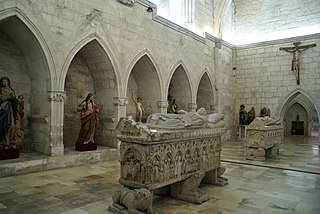
The Diocesan and Cathedral Museum of Valladolid is located inside the Cathedral of Our Lady of the Assumption in Valladolid, autonomous community of Castilla y León, Spain.
Wikipedia: Museo Diocesano y Catedralicio de Valladolid (ES)
Sight 15: Miguel de Cervantes
Join Free Tour*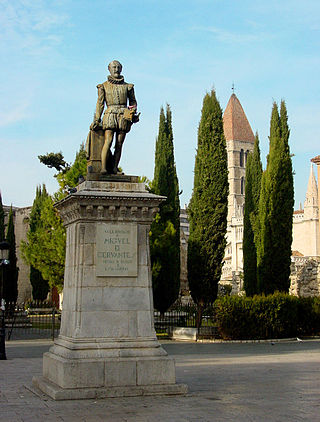
The statue of Cervantes is located in the Plaza de la Universidad de Valladolid, placed in front of it.
Sight 16: Plaza de la Universidad
Join Free Tour*The Plaza de la Universidad is one of the main squares in the city center of Valladolid, in the autonomous community of Castilla y León, Spain. Historically known as Plaza de Santa María, it was renamed at the beginning of the twentieth century because it is the façade of the university, now the Faculty of Law of the University of Valladolid.
Sight 17: Fachada de la Universidad de Valladolid
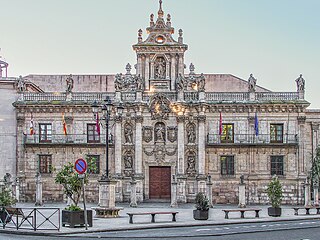
The façade of the University of Valladolid of Spain was built between 1716 and 1718 in the Baroque style. The architect Fray Pedro de la Visitacion supervised the construction. The façade was part of a project to enlarge the buildings of the university.
Sight 18: Calle de Juan Mambrilla
Sight 19: Iglesia de Santa María de la Antigua
The Church of Saint Mary the Ancient is a 12th-century church in Valladolid, central Spain. It was declared Bien de Interés Cultural in 1897.
Sight 20: Iglesia de San Martín
The Church of San Martín and San Benito el Viejo is a Roman Catholic parish church located in the center of the city of Valladolid, in the province of the same name in the Community of Castile and León, Spain. An Asset of Cultural Interest (BIC), it has been a National Historic-Artistic Monument since 1993.
Sight 21: Zorrillas's House Museum
The Casa de Zorrilla in Valladolid, Castile and León, (Spain) is the building in which the romantic poet was born on February 21, 1817.
Sight 22: Iglesia de San Pablo
The Iglesia conventual de San Pablo or San Pablo de Valladolid is a church and former Dominican convent, of Isabelline style, in the city of Valladolid, in Castile and León, Spain. The church was commissioned by Cardinal Juan de Torquemada between 1445 and 1468. It was subsequently extended and refurbished until 1616. Kings Philip II and Philip IV of Spain were baptized in the church, and it was visited by Napoleon. It is one of the buildings considered most emblematic of the city.
Sight 23: Museo de Escultura Colegio de San Gregorio
The Colegio de San Gregorio is an Isabelline style building located in the city of Valladolid, in Castile and León, Spain, it was formerly a college and now is housing the Museo Nacional de Escultura museum. This building is one of the best examples of the architectural style known as Isabelline, which is the characteristic architectural style of the Crown of Castile region during the Catholic Monarchs' reign.
Sight 24: Museo de Escultura Casa del Sol
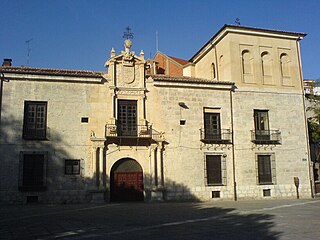
The Palace of the Count of Gondomar, better known as the House of the Sun, is a palace in the city of Valladolid, Castile and León, Spain. Since 2012 it has housed the National Museum of Artistic Reproductions.
Sight 25: Museo de Escultura Iglesia de San Benito el Viejo
The Church of San Benito el Viejo was a church located in Valladolid, Castile and León, Spain, constituting the chapel of the palace of the Count of Gondomar or Casa del Sol. In 2012 it was rehabilitated and desacralized to integrate, together with the palace, within the complex of the National Museum of Sculpture, as it adjoins, being separated by a garden, with the school of San Gregorio, the main headquarters.
Sight 26: Archivo Histórico Provincial
The Provincial Historical Archive of Valladolid is a document archive located in the town of Valladolid, Castile and León, Spain. It is located in the Palacio de los Vivero, which was previously the Royal Audience and Chancery of Valladolid between 1371 and 1834. The palace is also home to the Archive of the Royal Chancery of Valladolid.
Sight 27: Cárcel de la Chancillería
The Chancery Prison of Valladolid is a building designed in classicist style by the architect Nicolás Bueno and carried out by Felipe Berrojo, Juan de Median Argüelles, Juan Tejedor Lozano, and Pedro de Biermo, during the years 1675 and 1679. It is located in the municipality of Valladolid, in the Province of Valladolid, in the autonomous community of Castilla y León, Spain, where the Reina Sofía Library is currently located. It is located in the center of the city along with the Palacio de los Vivero, the University Clinical Hospital of Valladolid, the Church of San Pedro Apóstol and the Convent of the Descalzas Reales. It was the prison for prisoners whose cases were processed by the Court of the Royal Audience. It was for years a prison in Valladolid until 1935, when what is now the "Esgueva" Civic Center was inaugurated.
Sight 28: Iglesia de San Pedro Apóstol
The church of San Pedro Apóstol is a Catholic temple located in Valladolid. It is located behind the University Clinical Hospital of Valladolid and near the historic Chancery Prison of Valladolid.
Sight 29: Iglesia de Santa Clara de Asís
The church of Santa Clara de Asís is a Catholic temple located in Valladolid.
Sight 30: Convento de Santa Teresa
The Convent of La Concepción del Carmen, popularly known as the Convent of Santa Teresa, is a cloistered convent of Discalced Carmelite nuns located in the Spanish city of Valladolid, in the autonomous community of Castile and León, Spain.
Wikipedia: Convento de la Concepción del Carmen (Valladolid) (ES)
Sight 31: Iglesia de San Nicolás
The church of San Nicolás de Bari is a Catholic parish church located in the center of the city of Valladolid, in the homonymous province of the community of Castile and León, Spain.
Sight 32: Plaza de la Trinidad
The Plaza de la Trinidad is located northwest of the city of Valladolid (Spain), near the Pisuerga River. It belongs to the historic neighborhood of San Nicolás. The square is very wide and its southern flank is completely open to San Quirce street. It is home to three notable and important buildings in the history of Valladolid: the palace of the Counts of Benavente, the convent of San Quirce and the church of San Nicolás.
Sight 33: Convento de San Quirce y Santa Julita
The Convent of San Quirce y Santa Julita is a monastery located in Valladolid, Spain. Located in the Plaza de la Trinidad and occupied by Cistercian nuns, it is one of the oldest monasteries in the city. It is the headquarters of the Penitential Brotherhood of the Sacred Passion of Christ.
Sight 34: Plaza del Viejo Coso
Join Free Tour*The Old Coso, today Plaza del Viejo Coso or Plaza del Coso, was the first bullring in Valladolid, built in the nineteenth century. Until that date, bullfighting festivities were held in the Plaza Mayor and areas surrounding the Puerta del Campo or in the Plaza Vieja or Plaza de San Pablo, in which wooden tribunes were placed for spectators, imitating models such as the one in the Plaza del Coso de Peñafiel.
Sight 35: Museo Arqueológico Provincial
The Museum of Valladolid was created as the Provincial Museum of Antiquities in 1879. Since the late 1960s, its headquarters have been located in the Palacio de Fabio Nelli in Valladolid, autonomous community of Castilla y León, Spain. The museum's collection is divided into two sections: Archaeology and Fine Arts.
Sight 36: Iglesia de San Miguel y San Julián
The church of San Miguel and San Julián is the temple of the old Professed House of the Society of Jesus in the city of Valladolid (Spain). When the Jesuits were expelled in 1767, by order of Charles III of Spain, the building was used as the parish church of San Miguel, San Julián and Santa Basilisa in 1775.
Wikipedia: Iglesia de San Miguel y San Julián (Valladolid) (ES)
Sight 37: Iglesia de San Benito
The Church of the Monastery of San Benito el Real is a parish church and former Benedictine monastery located in the city of Valladolid, Castile and León, Spain.
Sight 38: Mercado del Val
The Val market is a market in Valladolid (Spain). It is an example of iron architecture. It stands in the Plaça del Val, next to the church of San Benito el Real. It is the oldest market that is preserved in the city, after the demolition of those of El Campillo and Portugalete, the three built during the mayoralty of Miguel Íscar Juárez. It is inspired by Les Halles in Paris, and was built between 1878 and 1882, with a project by the architect Joaquín Ruiz Sierra.
Sight 39: Fuente de los Colosos
Los Colossi is the name of a fountain in Valladolid, Spain; it is located in the Plaza de la Rinconada, approximately in the same space where its ancestor called the Fuente de la Rinconada was, of which not one stone was left when it was completely dismantled when the square was remodelled at the end of the nineteenth century. The difference between one and the other is that the Rinconada was a public or neighborhood fountain while Los Colosos was born as a decorative fountain. It was built in 1996 by the architect Fernando González Poncio with sculptures by Pedro Monje.
Sight 40: Iglesia de Nuestro Padre Jesús Nazareno
The Church of Our Father Jesus Nazareno is a modern temple located in the center of the Spanish city of Valladolid.
Wikipedia: Iglesia de Nuestro Padre Jesús Nazareno (Valladolid) (ES)
Sight 41: Rosaleda Francisco Sabadell
The Francisco Sabadell Rose Garden is one of the oldest gardens in Valladolid. It is located next to the left bank of the Pisuerga, extending along its route from the Poniente bridge to the Isabel la Católica bridge, bordering in turn with the Paseo de Isabel la Católica and the beach of Las Moreras. Its area is 35,738 m².
Sight 42: Convento de Santa Isabel
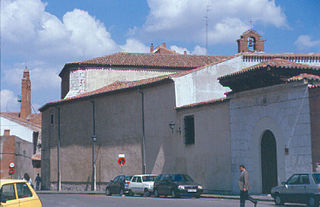
The convent of Santa Isabel is a Catholic temple located in the center of Valladolid. The convent has been restored, and the complete renovation of the church was completed in April 2006. Some spaces have been adapted to house the Museum of Santa Isabel, enjoying the atmosphere of the Franciscan cloister and contemplating pieces of remarkable artistic value in its rooms.
Sight 43: Monasterio de Santa Catalina de Siena
The Monastery of the Dominican Mothers of Santa Catalina is a Roman Catholic church located in Valladolid, Spain. It has interesting works of artistic value.
Wikipedia: Monasterio de Santa Catalina de Siena (Valladolid) (ES)
Sight 44: Parque de las Moreras
Las Moreras beach is a river beach located in the city of Valladolid. It is located parallel to the Paseo de Isabel la Católica, bordering the Francisco Sabadell Rose Garden and part of the left bank of the Pisuerga River. The beach dates back to the 1950s.
Share
How likely are you to recommend us?
Disclaimer Please be aware of your surroundings and do not enter private property. We are not liable for any damages that occur during the tours.
GPX-Download For navigation apps and GPS devices you can download the tour as a GPX file.
